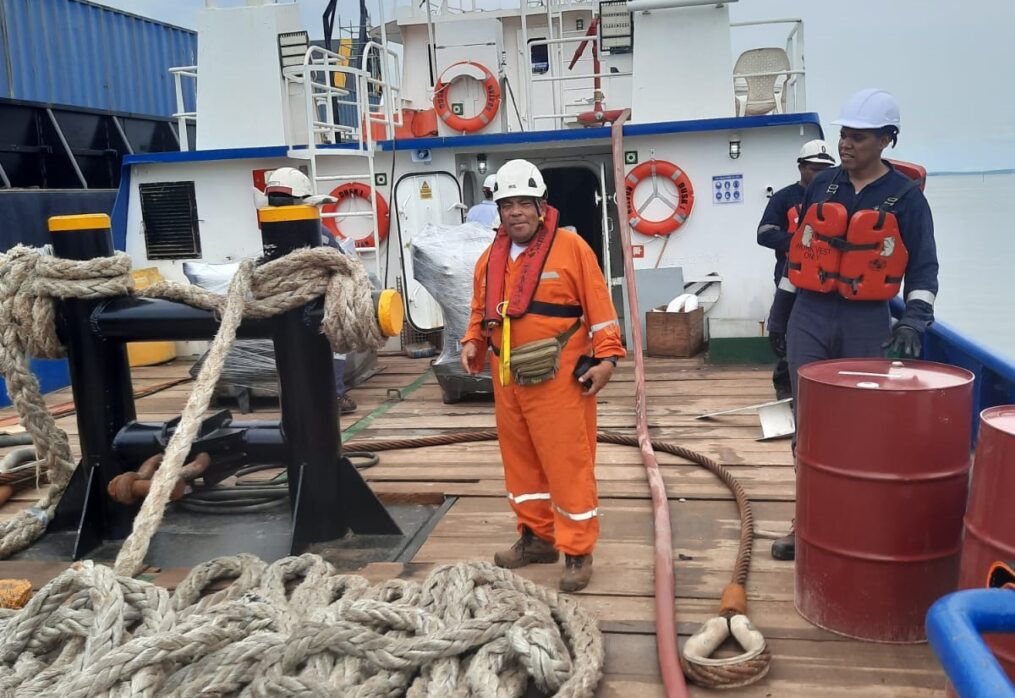Meet INTLREG People – Rafael Mezza, Surveyor based in Cartagena, Colombia.
Surveyors are the guardians of maritime safety and compliance, playing a vital role in maintaining the integrity of the global fleet. Their expertise and diligence help to ensure that ships are safe, environmentally responsible, and fit for purpose, contributing to the overall health and sustainability of the maritime industry.
We had the chance to speak with INTLREG surveyor Rafael Mezza, based in Cartagena, Colombia.
Q: Please tell us about yourself and your family and why you decided to become a surveyor.
Mezza: I come from a close-knit family with a strong maritime background, which sparked my interest in the industry. I decided to become a surveyor to combine my passion for the sea with my desire to ensure safety and compliance in maritime operations.
Q: Could you provide an overview of your role as a classification surveyor and your experience in the maritime industry?
Mezza: As a classification surveyor with more than 30 years of experience, my role involves inspecting vessels to ensure they adhere to industry standards and safety regulations. I’ve honed my expertise in ship classification, design evaluation, and ensuring maritime safety.
Q: How do you ensure that vessels adhere to international regulations and INTLREG classification society standards?
Mezza: I ensure compliance by staying updated with the latest international regulations and standards through continuous training provided by INTLREG. This training equips me with the knowledge and tools to conduct rigorous inspections, assess designs, and certify vessels to meet these stringent requirements.
Q: Could you share an example of a challenging situation you’ve encountered during a survey and how you resolved it?
Mezza: I am quite proud of having achieved the release of a ship from our registry that was unjustly detained by an inspector of the port state. Due to misinterpretation of the rules and lack of some technical knowledge, the inspector made a faulty decision. During a nighttime inspection on a weekend, I discovered that the fault lay in a simple language misinterpretation. The inspector of the port state had used an online tool to translate the standard from its original text language causing the syntax to be lost.
Q: What do you enjoy most about working as surveyor?
Mezza: What I most enjoy about working as a surveyor is the dynamic nature of the job. Every day presents new challenges and opportunities to apply my expertise in ensuring maritime safety and compliance. It’s a rewarding career that keeps me engaged and dedicated to the industry.
Q: How do you stay up to date with the latest developments in maritime regulations and technologies?
Mezza: I stay current by actively participating in training programs and seminars provided by INTLREG. Additionally, I regularly engage with industry publications, attend conferences, and network with peers to remain informed about evolving maritime regulations and emerging technologies.
Q: Could you share your insights on the role of the surveyor in the broader maritime industry and your contribution to safety and sustainability?
Mezza: Surveyors are essential in upholding safety and sustainability in the maritime sector. We ensure vessels meet strict standards, reducing risks and environmental impacts. My contribution lies in certifying that ships adhere to these principles, promoting a safer and greener maritime industry.
Q: In your opinion, how is the role of a classification surveyor evolving with advancements in technology and changing industry expectations?
Mezza: The role is evolving to embrace digital tools like remote inspections and data analytics. There’s a growing emphasis on sustainability, necessitating stricter compliance assessments. As a classification surveyor, I adapt by integrating technology for more efficient inspections and staying attuned to evolving industry standards.
Q: How do you see the maritime future of Colombia?
Mezza: The maritime future of Colombia holds promise. The country’s strategic location and extensive coastline offer opportunities for maritime trade and development. Investments in infrastructure, sustainability, and adherence to international regulations can position Colombia as a key player in the global maritime industry.
Q: What advice would you give to shipowners or aspiring maritime professionals who are interested in understanding the survey process better?
Mezza: For shipowners, prioritize regular surveys to ensure vessel integrity. Aspiring professionals should seek mentorship, gain practical experience, and invest in continuous learning to master the intricacies of the survey process.
Conclusion
Surveyors are the backbone of a classification society, serving as the custodians of maritime safety and compliance. We appreciate Rafael Mezza’s work, expertise, and professionalism. The importance of his inputs cannot be overstated, as he plays a multifaceted role in safeguarding the maritime industry in Colombia.

